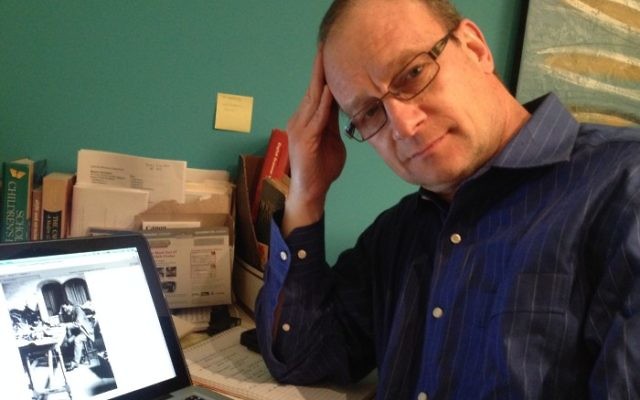Atlanta Jews Find Power in Single Voice
In the end, what brings about change are the words of individuals, multiplied many times over, until they form a chorus.
Dave Schechter is a veteran journalist whose career includes writing and producing reports from Israel and elsewhere in the Middle East.
Five years ago in this space, I asked: Who speaks for the Jews? “For that matter, does anyone have the authority, even implicit, to speak for the entirety of the Jewish people?”
Those questions were prompted by Israeli Prime Minister Benjamin Netanyahu saying, “I went to Paris not just as the prime minister of Israel but as a representative of the entire Jewish people.”
After considering the matter, I concluded: “A prime minister of Israel does not speak for me. The Conference of Presidents of Major American Jewish Organizations does not speak for me. My rabbi does not speak for me. As it pertains to my Jewish identity and all that it encompasses (including Israel), I speak for me. The same should be true for all of us.”
Now I ask: Who speaks for Atlanta’s Jews?
Recent events have compelled individuals, companies and organizations to consider what they are willing to do — and say — in support of their values.
Such was the case when five Jewish organizations in Atlanta issued a statement in response to the death of an African American man under the knee of a Minneapolis police officer and the protests that followed.
The signatories were the Jewish Federation of Greater Atlanta, the Jewish Community Relations Council of Atlanta, the Anti-Defamation League Southeast region, the American Jewish Committee regional office in Atlanta, and the Atlanta Rabbinical Association.
Emails sent by a couple of rabbis who objected to the tone and content of the statement found their way to my inbox and into a story in the AJT.
The ARA’s president, Rabbi Laurence Rosenthal of Ahavath Achim Synagogue, said that the statement carried a message “that the authors identified and believed we needed to be articulated clearly at this difficult time.”
I understand the desire to issue a statement. Silence might have been interpreted as indifference, or a desire to display neutrality, or, even worse, as tacit approval.
An experienced hand in helping organizations and companies find their voice told me that issuing a statement “gives people permission to say something and to know that even if they don’t say it perfectly, it probably was good to be on the side of saying something.”
I have seen individual organizations tie themselves into knots composing a public statement, so you have to appreciate the challenge of drafting language agreeable to five organizations, each with a distinct mission.
“There is a reason why communal statements don’t take place often,” said Dov Wilker, director of the Atlanta AJC. “The issue needs to be appropriate. The timing is important. We need to take into account diverse viewpoints to ensure a message that can be supported by the community.”
No single organization, nor five, can speak for Atlanta’s Jewish community, given its diversity of religious belief and practices, of races and ethnicities, and of political viewpoints and cultural practices.
Eric Robbins, president and CEO of the Federation, said that the purpose of the statement was to “demonstrate, at the very least, the importance of leaning in to the issue as a Jewish community and engaging in the dialogue, especially with those who may see it differently than you, to move things forward. These statements should be start of a constructive conversation, not an end. The questions and dialogue that follow are more important than the statement, just like studying Talmud.”
One model for dialogue is the “small conversations” underway between members of the Atlanta Black-Jewish Coalition, “to educate, to talk about what’s going on, … for the Jewish community to hear what people in the black community are doing,” said Wilker, whose predecessors were instrumental in creating the project in 1982.
For all of the peaks and valleys in Black-Jewish relations in Atlanta, this is a time to be “on the side of saying something,” even if the wording may not be perfect.
In recent weeks, an impressive number of individual Jewish Atlantans — demonstrating the community’s diversity — have felt moved to heed the biblical admonition “Do not stand idly by the blood of your neighbor” (Leviticus 19:16), which also was the opening line of the statement issued by the five organizations.
From where I sit, the voices of individuals, whether as part of a larger chorus during a protest march downtown or by middle school students holding homemade signs on a suburban corner, are as crucial as any statement issued in their name.
- Benjamin Netanyahu
- Israel
- Opinion
- From Where I Sit
- Atlanta Jewish Times
- jewish federation of greater atlanta
- Jewish Community Relations Council of Atlanta
- Anti-Defamation League Southeast
- American Jewish Committee
- Atlanta Rabbinical Association
- Rabbi Laurence Rosenthal
- Ahavath Achim Synagogue
- Dov Wilker
- Eric Robbins
- Atlanta Black-Jewish Coalition
- Black-Jewish Relations
- Atlanta




comments